Keith and Jim Overton visit the Queensland Eye Institute to be treated for macular disease, and both donate regularly to the Queensland Eye Institute Foundation (QEIF). On a recent visit from QEIF’s Community Liaison Officer, Keith and Jim talked about family, travel and their long association with QEI.
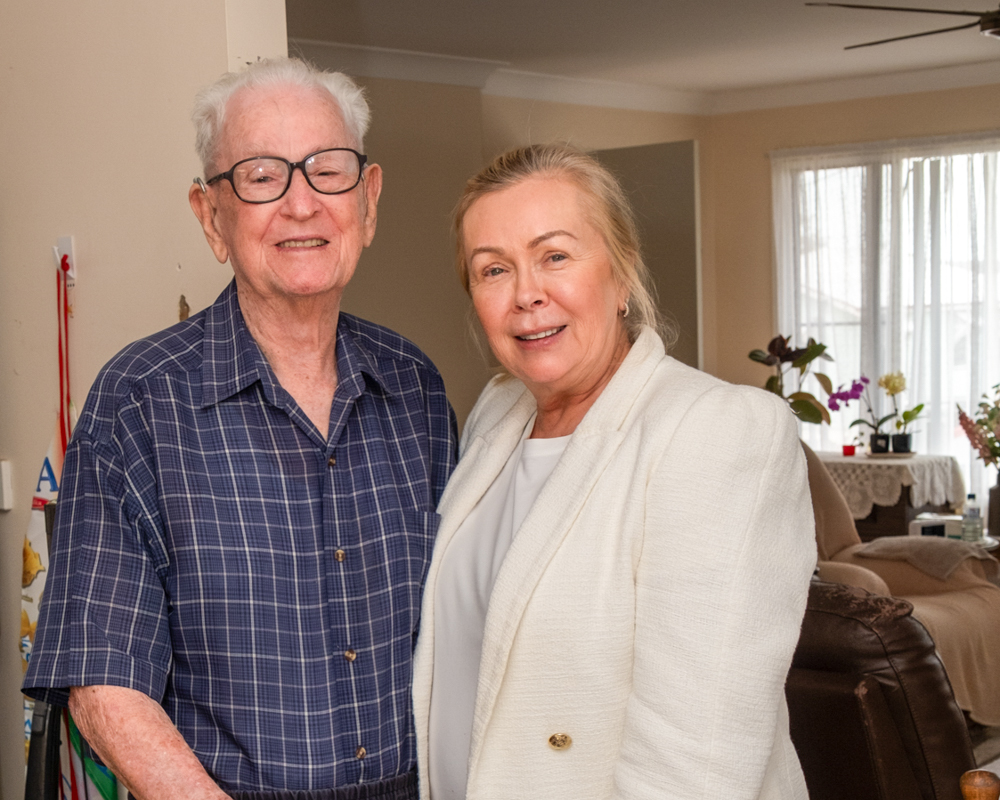
Keith
Keith Overton celebrated his 100th birthday in June 2024. The military veteran and great, great grandfather smiles widely and walks carefully with help from a frame. He’s a great talker, and while his eyesight might be failing there’s nothing wrong with his memory.
Keith vividly recalls the journey he made as a young boy when the family moved from Dee Why to Dora Creek in New South Wales. His father, a veteran of World War I who suffered permanent lung damage from his time in the trenches, struggled with the humidity at Dee Why and the sandy soil was no good for growing vegetables.
So they strapped their possessions to a couple of horse-drawn drays and set off for the bush. The journey took 15 days, and cost the family their precious bedroom furniture, stolen from a roadside inn where they spent a night.
Keith was a teenager when World War II erupted. He joined the navy and met his future wife Grace while on leave in Brisbane.
Keith and a fellow sailor went to a Railway Institute dance in South Brisbane and were dismayed to find a hall full of servicemen and only a few women to talk to.
They hatched a plan to stand by the elevator and “grab the first two girls who came through the doors”, Keith says. The strategy worked, and Keith and Grace married two years later.
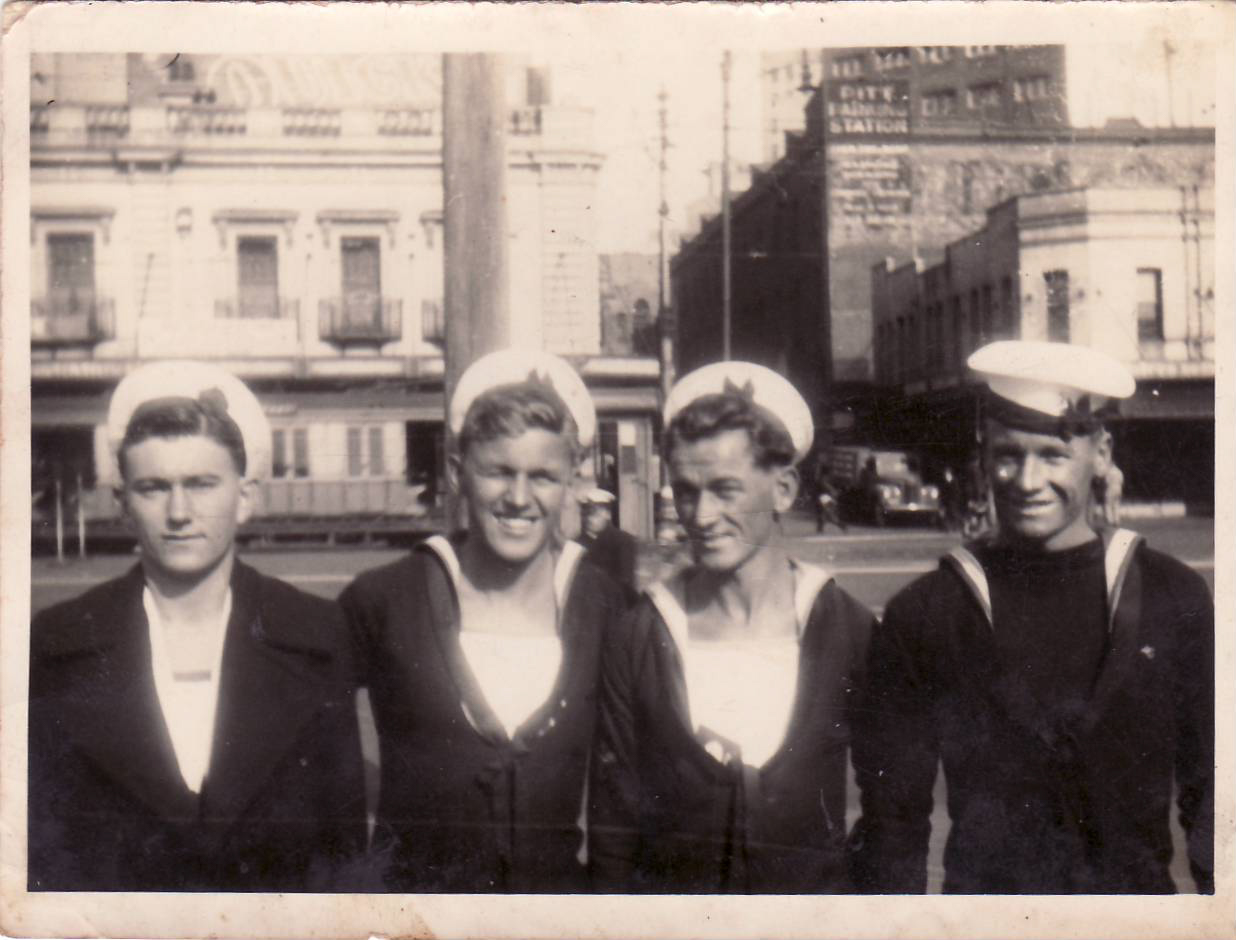
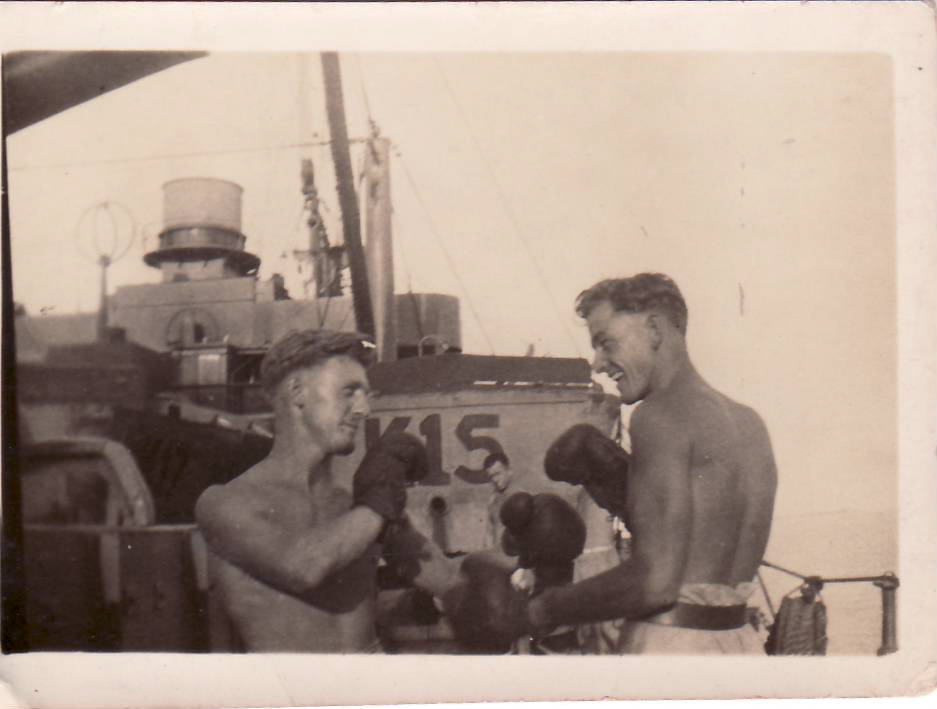
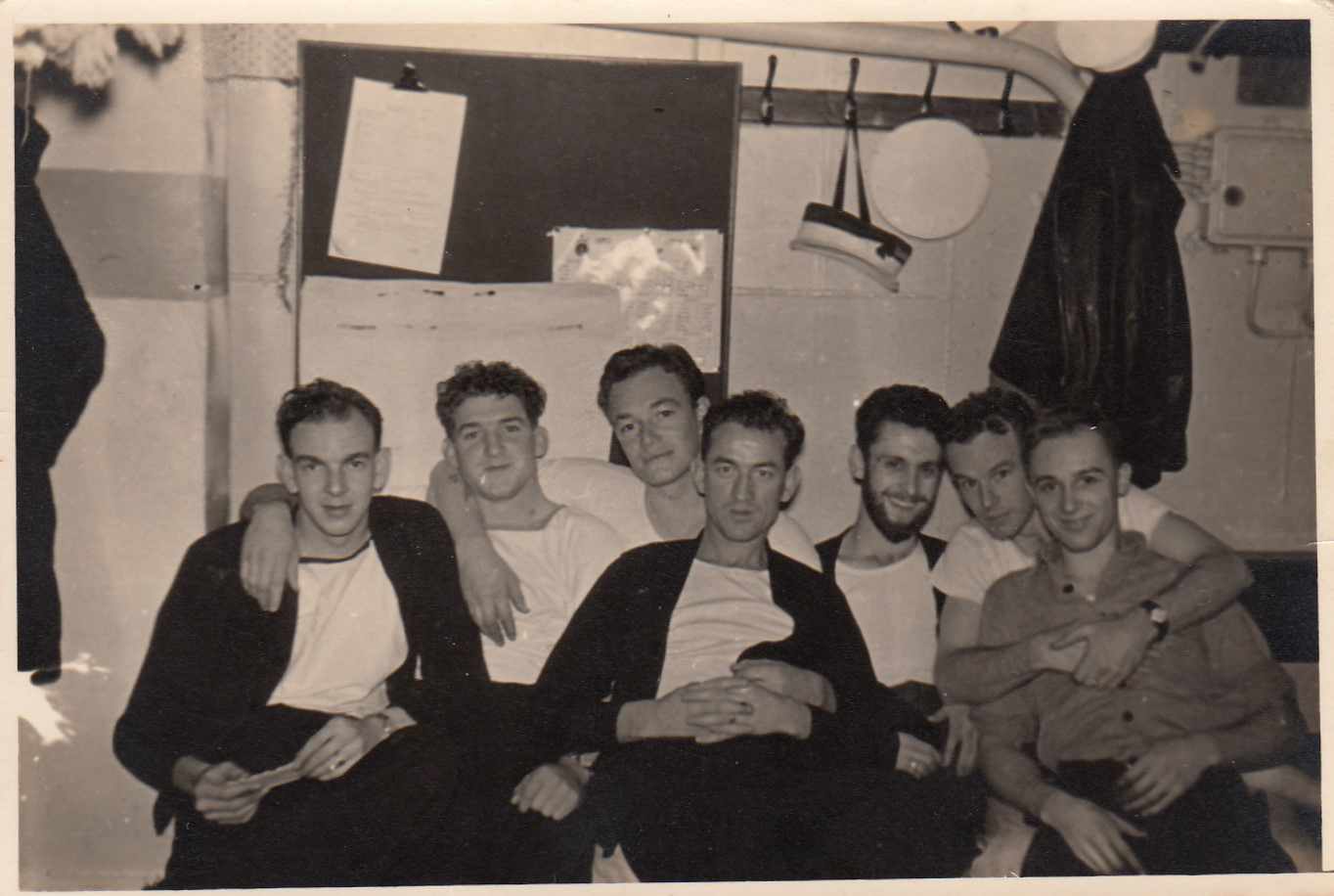
Keith didn’t have problems with his eyes until later in life, always passing his physical exams with the navy. But macular disease lay dormant in his genetic code and declared itself in his retirement years.
A practical man who worked as a navy stoker – the labourers and tradesmen responsible for the ship’s engines and operating the ramps on landing vessels – Keith viewed his scarred and malfunctioning eye as an engineering issue.
On one visit to his QEI doctor, Associate Professor Anthony Kwan, Keith asked if the eye could simply be replaced, just as science can now do for failing organs like hearts and kidneys.
Unfortunately for Keith and others who live with macular disease, bionic vision remains a pipe dream. The human eye is incredibly complex, with more than a million nerve fibres transmitting visual information from the eye to the brain through the optic nerve. Medical technology today isn’t advanced enough to regenerate or reattach these nerves in a way that restores vision.
Jim
Keith’s son Jim was born in the aftermath of World War II. His father was away for much of Jim’s childhood, serving in the Navy until the mid-1950s. Keith was part of the Japanese occupation forces after World War II and served during the Korean War.
Jim remembers him bringing home wind-up toys, “clockwork hurdy gurneys and little things that made other kids jealous.”
Jim, whose macular disease also emerged in later life, has been visiting the QEI clinic for nearly 15 years.
“I got a new glasses prescription, and then my eyesight went funny,” Jim says.
“If I covered one eye, I would have vision. If I left both uncovered, I would have ordinary vision. And if I covered the other eye everything was blurred and out of focus.
“So I raced back to the optometrist and said ‘you’ve given me the wrong bloody prescription!’,” Jim says with a laugh.
Another test quickly revealed Jim’s macular disease, and he’s received regular treatment from QEI ever since.
Jim’s long career formulating inks for the graphical arts industry gave him a better-than-usual appreciation for colour. As an industrial chemist, his peripheral vision was vital.
“For instance, if someone nearby wears a blue shirt and you’re comparing a standard to a print sample, that blue shirt is going to change how you see the print sample, because you’re absorbing colour,” Jim says.
Jim’s enjoying retirement now, tinkering with his 2007 Camry and following the harness races. He obtained a strapper’s licence so he could be more hands-on with a horse he has an interest in. But everything he does revolves around caring for his father.
Devotion runs in the family
The love and respect between Jim and Keith are on display in dozens of gestures, small and large. Jim and his wife Lyn welcomed Keith into their home nearly 10 years ago, not long after Grace passed away. They’ve cared for him since then, including administering Keith’s eye drops three times a day, every day.
Of course, the father set the son a good example.
As we talk, Jim delivers Keith a cup of coffee and shares a story showing the true measure of his father’s kindness.
“Mum and dad were married for 69 years,” Jim says, “and he drank tea every day because mum made tea – morning tea, afternoon tea, after the meal.
“When he came up here to live, I said, ‘Tea for you?’.
“Dad said, ‘No. I don’t like tea’,” Jim recounts with a laugh.
“He’d been drinking tea for 69 years so as not to offend mum.”
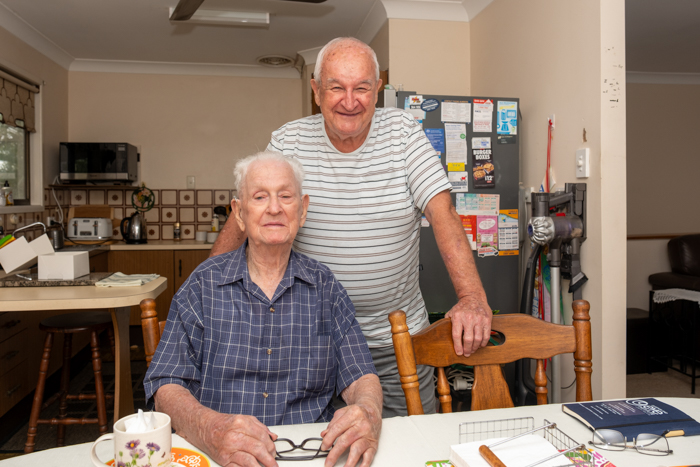
Lives well lived
Keith’s career in the navy took him all around the world. He visited North and South America, all through the Middle East, Malta and Gibraltar and he’s always wanted to visit Vladivostok. “But I wouldn’t want to live anywhere other than Australia”, Keith says.
Jim is also well travelled but has a couple of adventures lingering on his bucket list. He wants to fly to Tokyo then take the bullet train to Osaka to attend a Sumo tournament. And he’d love to take the Orient Express from London to Venice and from there to Rome via Milan and Turin, then travel along the Apian Way.
“We took opportunities as they arose,” Jim says. “We didn’t back off.”
About donating
Perhaps it’s Jim and Keith’s shared love of their family that shapes their commitment to legacy. Both regularly donate to QEIF fundraising campaigns, believing vision research is important for the health and wellbeing of their children and all future generations.
“It’s not much but it’s something,” Jim says. “I think everyone should donate.
“Dad’s a DVA so visiting QEI costs him nothing, and it costs me virtually nothing after my insurance refund,” Jim says.
“It’s admirable what QEI does.
“Maybe there will be an artificial eye sometime in the future, or something that will improve life for other people.
“Not donating is just lengthening the time it will take to find cures,” Jim says.